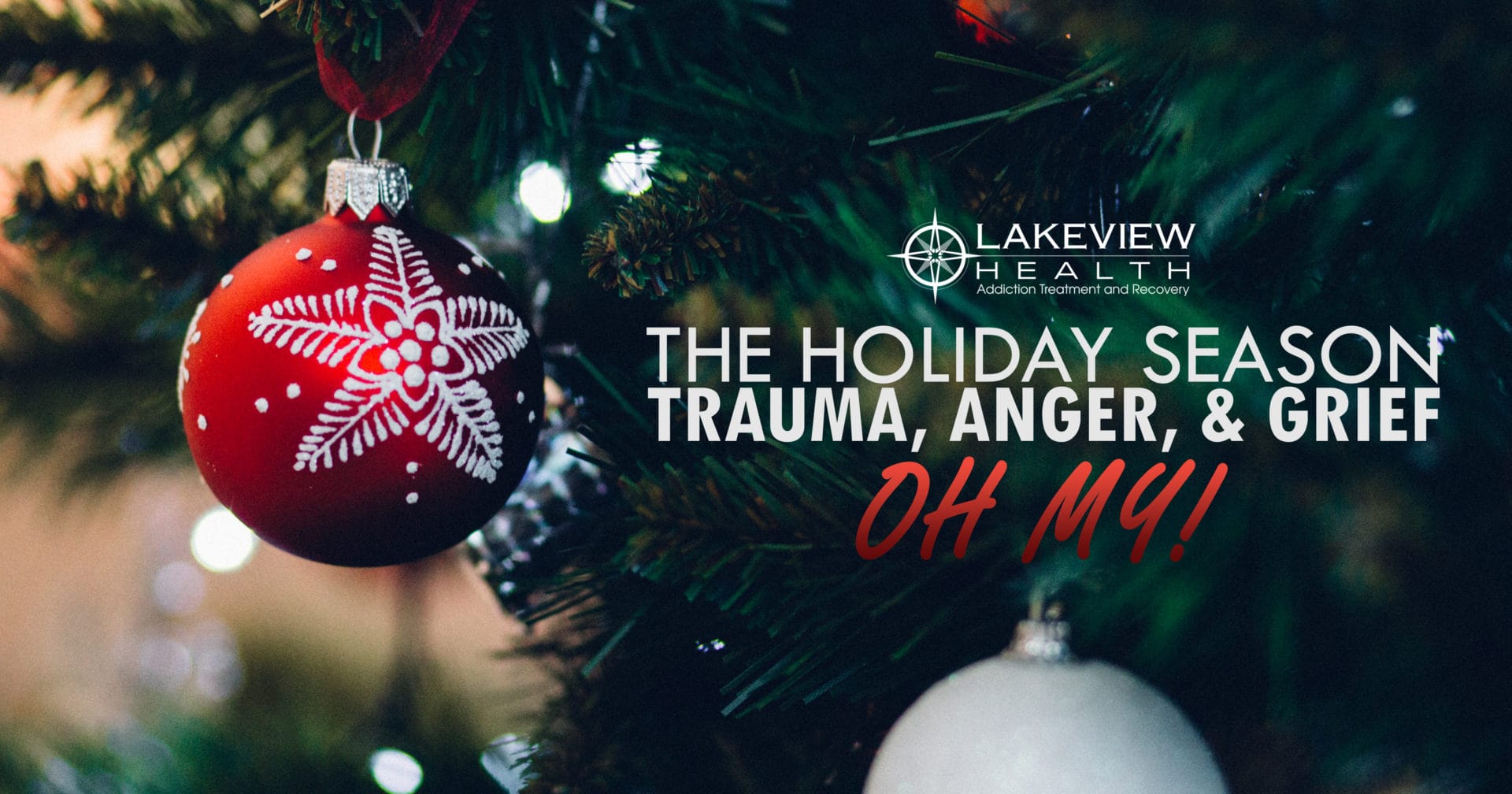

By: Philip Hemphill
The Holiday Season: Trauma, Anger, and Grief (Oh My!)
By Philip Hemphill, Ph.D., LCSW As I begin to reflect on the past year which most of us are inclined to do around this time, I am reminded of the immense stress, fear, loneliness, anger, and vulnerability some of our patients may experience. The very moments that give us pause as we summarize our year are often filled with triggers as the holidays bring a new set of distressing experiences. As I began to look to the future by reading the latest literature, it revealed that the past is often inescapable. A 2018 article by Emily R. Dworkin and her colleagues entitled PTSD symptom presentation among people with alcohol and drug use disorders: Comparisons by substance of abuse in Addictive Behaviors, Volume 76, pages 188-194 examined 208 individuals seeking treatment at a residential Substance Use Disorder (SUD) facility who had a positive diagnosis of PTSD. The study revealed that these individuals appear to cluster in groups of substances and PTSD diagnostic criteria. For example, individuals with symptoms of avoidance were more likely to self-medicate by alcohol, which could worsen these symptoms. Also, a strong relationship was discovered between Cocaine Use Disorder (CUD) and the hyperarousal symptoms. The specific symptoms of irritability/angry outbursts and hypervigilance were significantly more severe in these individuals with a Cocaine Use Disorder (CUD) than those without this disorder. Finally, Sedative/Hypnotic/Anxiolytic Use Disorder appeared to be associated with PTSD symptoms of numbing. This relatively robust data can aid in assisting patients during the holidays as they face individuals, situations, and events that may increase their intensity, frequency, and duration of PTSD triggers. Depending on their primary PTSD symptoms, we should be continuously exploring the increased potential for relapse during the holidays. Now we can be more specific with inquiries and understanding of the potential matched SUD and PTSD symptoms. Another holiday risk for patients is the threat of violence during this time of the year as families and friends gather. Thomas Harford and colleagues published an article entitled Substance Use Disorders and Self- and Other-Directed Violence Among Adults: Results from the National Survey on Drug Use and Health in the Journal of Affective Disorders, Volume 225, pages 365 – 373 that revealed a significant relationship between individuals with self- and other- directed violence who were diagnosed with nicotine dependence, 2+SUD criteria (to a varying degree by specific substance), and Serious Psychological Distress (SPD) than adults who reported no violence. Of the specific Substance Use Disorders, Alcohol Use Disorders, Nicotine Dependence, Marijuana Use Disorders, and Pain Reliever Use Disorders stand out as important risk factors that should be targeted for preventing violent behaviors. This large study obtained data from the National Survey on Drug Use and Health (NSDUH) pooled across survey years 2008–2015, with a combined sample of 314,881 adult respondents underscores our need to monitor those with a past history of self- and other- directed violence for risk factors while providing coping strategies, affect regulation, distress tolerance, and conflict resolution skills to alleviate risk. Finally, another 2018 article on grief entitled Everywhere and Nowhere by Pamela Mosher appears in the Child and Adolescent Psychiatric Clinics, Volume 27, Issue 1, pages 109 – 124. While this article does not cite SUD formally within the scholarly body, I couldn’t help but think about the grief caused by the Opioid Epidemic. The concept of anticipatory grief which is now understood to occur before an impending death. Pamela writes “It is experienced by loved ones and individuals facing their own impending death. It is distinct from the grief that occurs after death, although there are shared features. Anticipatory grief not only focuses on future losses but also on past and present losses too. This combination differentiates it from post-loss grief: there is some rehearsal of death, attempts are made to accept death or adjust to its consequences before death occurs, and time remains to resolve issues and say goodbye.” She explains “Anticipating the death of a child creates an unfathomable state for parents or siblings. During anticipatory grief, a person is in the present moment with an ill loved one, while simultaneously mourning both the person who existed in the past and the future the person will never enjoy.” Again, we are called to be active listeners, discriminating reviewers of cognitive distortions, a stabilizing/secure base, restorers of natural functioning, and resiliency coaches during these times when our patients and their families need more from us during this holiday season.





